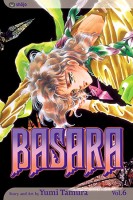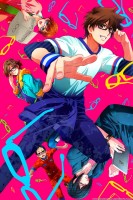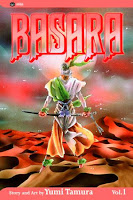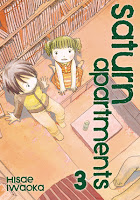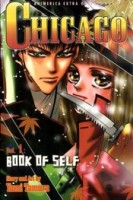
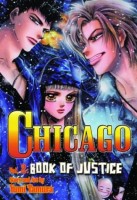 And the winner of the Yumi Tamura Giveaway is… Olivia!
And the winner of the Yumi Tamura Giveaway is… Olivia!
As the winner, Olivia will be receiving a complete set of Yumi Tamura’s shoujo action thriller Chicago as published by Viz Media back in the day. I came across Chicago because Tamura was also the creator of Basara, a series that I love. And so for this giveaway, I asked that participants tell me about the mangaka whose work they always make a point to read. Check out the giveaway comments for the detailed responses, and check out below for the list of mangaka mentioned in addition to a selection of their works that are available in English!
Aki
The Angel of Elhamburg
Olympos
Utahime: The Songstress
Moyoco Anno
In Clothes Called Fat
Sakuran: Blossoms Wild
Sugar Sugar Rune
CLAMP
Cardcaptor Sakura
X
xxxHolic
Usamaru Furuya
Genkaku Picasso
Lychee Light Club
No Longer Human
Kyoko Hikawa
From Far Away
Kazuo Koike & Goseki Kojima
Lone Wolf & Cub
Path of the Assassin
Samurai Executioner
Mitsukazu Mihara
Doll
The Embalmer
IC in a Sunflower
Setona Mizushiro
After School Nightmare
Black Rose Alice
X-Day
Jun Mochizuki
Pandora Hearts
Kaoru Mori
Anything and Something
Bride’s Story
Emma
Takeshi Obata
All You Need Is Kill
Death Note
Hikaru no Go
Yayoi Ogawa
Tramps Like Us
Atsushi Ohkubo
B. Ichi
Soul Eater
Soul Eater Not!
Eiji Otsuka
The Kurosagi Corpse Delivery Service
Madara
MPD-Psycho
Yumi Tamura
Basara
Chicago
Wild Com.
Arina Tanemura
Idol Dreams
Phantom Thief Jeanne
Sakura Hime: The Legend of Princess Sakura
Jiro Taniguchi
A Distant Neighborhood
The Summit of the Gods
The Walking Man
Osamu Tezuka
Astroboy
Dororo
Message to Adolf
Yana Toboso
Black Butler
Rust Blaster
Naoki Urasawa
Master Keaton
Monster
Pluto
Yu Yagami
Go West!
Hikkatsu!: Strike a Blow to Vivify
Those Who Hunt Elves
Fumi Yoshinaga
Not Love But Delicious Foods Make Me So Happy!
Ôoku: The Inner Chambers
What Did You Eat Yesterday?
For the sake of space, I’ve limited the lists of works to up to three releases each in English, but many of the creators have other manga available in translation, too. And hopefully we’ll continue to see more of all of these mangaka! Thank you to everyone who took the time to participate in the giveaway and share some great mangaka with me. Hope to see you all again for the next giveaway!

